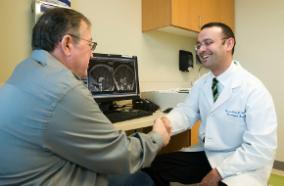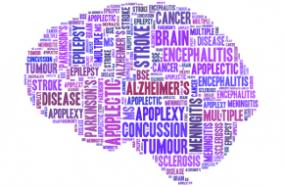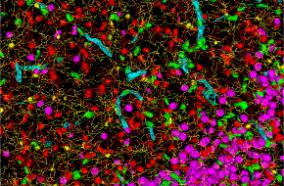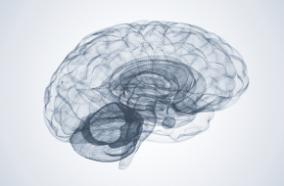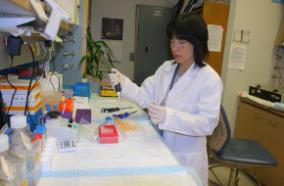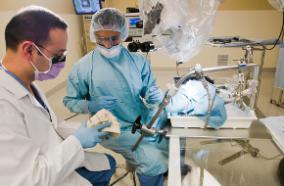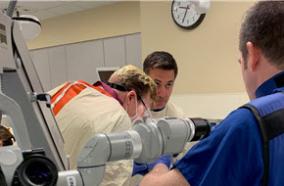Parkinson’s disease is a disorder caused by the death of certain groups of neurons, or brain cells. Although several groups of neurons are affected, the loss of neurons producing the chemical called dopamine causes most of the disabling symptoms.
Dopamine is made in neurons located in the midbrain, a part of the brain also known by other names, such as mesencephalon, substantia nigra and basal ganglia. Dopamine functions as a communicator between different types of neurons. Without dopamine, this communication is lost, causing a disordered imbalance of neuron activity in the region of the brain known as the basal ganglia or striatum. This region of the brain controls activities that we usually do not need to think about, such as muscle tone or smooth coordinated movements.
Parkinson’s disease has many symptoms. Common early symptoms include loss of smell, fatigue, muscular cramping and stiff arms and legs. Movement-related symptoms include slowness (bradykinesia), stiffness (rigidity), tremor or shaking and difficulty with balance. Patients may develop a very quiet voice (hypophonia) and small handwriting (micrographia).
In most cases, we are not able to identify an exact cause of the death of neurons in Parkinson’s disease. The cause is probably due to a combination of factors, including environmental and genetic factors. In certain rare families, Parkinson’s disease is inherited from previous generations. This inherited form of Parkinson’s disease may be caused by one of several abnormal genes.
The risk factors are largely unknown in the non-inherited forms of Parkinson’s disease. Exposure to certain metals or pesticides in an industrial setting, such as a manufacturing plant, has been associated with the development of Parkinson’s disease.
A neurologist diagnoses Parkinson’s disease based on a patient’s clinical symptoms and physical examination. There are no blood tests, X-rays or MRIs that can confirm if someone has Parkinson’s disease.
The symptoms of Parkinson’s disease, such as slow movements and stiffness, respond very well to medication. Unfortunately, the effectiveness of the medication decreases with time and patients may develop side effects. During the course of several years, medications are adjusted to control the symptoms of Parkinson’s disease. Parkinson’s disease and the medical treatment may interfere with thinking and memory. In advanced cases of Parkinson’s disease, the medication therapy may cause side effects, including abnormal wiggling movements called dyskinesia.
Patients diagnosed with Parkinson’s disease are encouraged to join a support group near their community. The Washington chapter of the American Parkinson Disease Association is an excellent resource.

